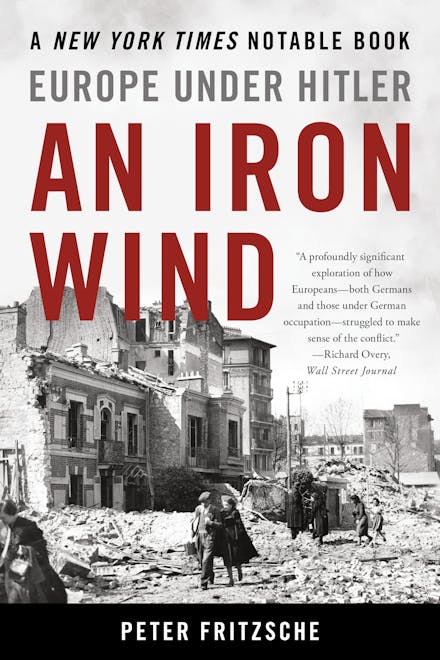Imprint
- Basic Books
20th century, Prose: non-fiction, History, 20th century history: c 1900 to c 2000
'A profoundly significant exploration of how Europeans-both Germans and those under German occupation-struggled to make sense of the conflict.' - Richard Overy, Wall Street Journal
'A profoundly significant exploration of how Europeans--both Germans and those under German occupation--struggled to make sense of the conflict.' - Richard Overy, Wall Street Journal
In AN IRON WIND, historian Peter Fritzsche draws on first-person accounts to show how civilians in occupied Europe struggled to understand the terrifying chaos of World War II. As the Third Reich targeted Europe's Jews, confusion and mistrust reigned. Was collaboration or resistance the wisest response? And where was God? Piecing together the broken words of the war's witnesses and victims, Fritzsche offers a haunting picture of the most violent conflict in modern history.
Praise for An Iron Wind: Europe Under Hitler
-
A profoundly significant exploration of how Europeans-both Germans and those under German occupation-struggled to make sense of the conflict by giving it some shape or meaning, or by simply accepting in the end that it made no sense... In a strikingly original chapter [Fritzsche] explores the question of where God stood in people's accounts of wartime excesses... It is difficult to do full justice to the richness and range of sources that Mr. Fritzsche has unearthed. The book is very much a history from below, providing glimpses of the reality, but it reflects the way that many ordinary people experience catastrophe then and now. - Wall Street Journal
-
A work of deep reflection by an experienced historian rather than an attempt to capture the history of World War II from any particular angle. Still, his announced theme - the moral challenges of the war for civilians in Europe - gives way at the beginning to set pieces on other subjects: the ones, the reader suspects, that Fritzsche finds most interesting. It is a pleasure to follow along.
-
- New York Times Book Review

























.png?auto=compress&w=150&h=60&fit=crop&fm=jpg)


.png?auto=compress&w=150&h=60&fit=crop&fm=jpg)

